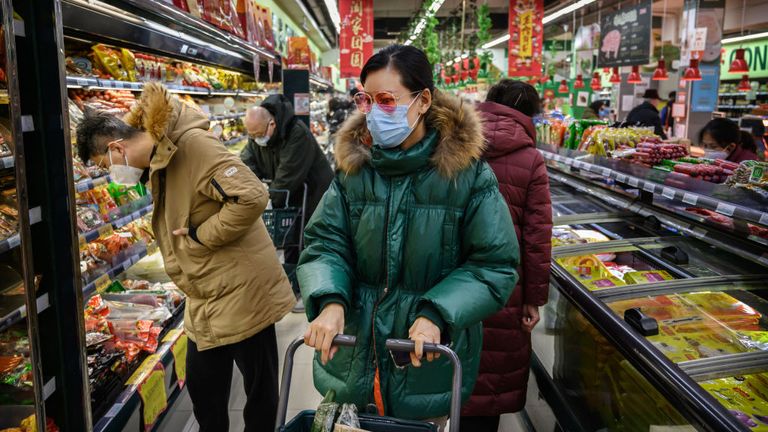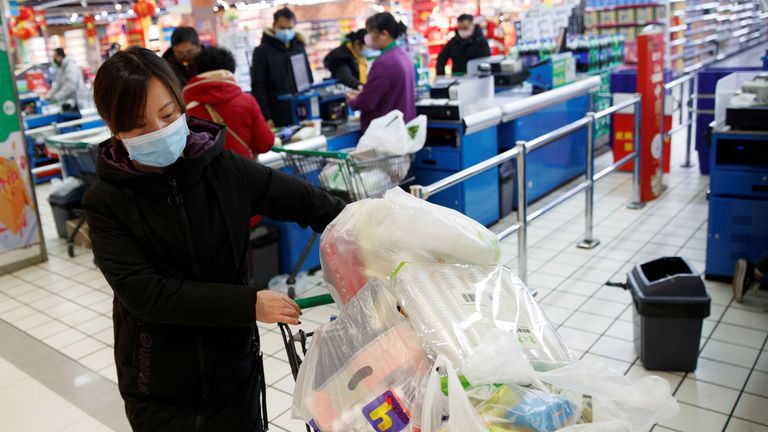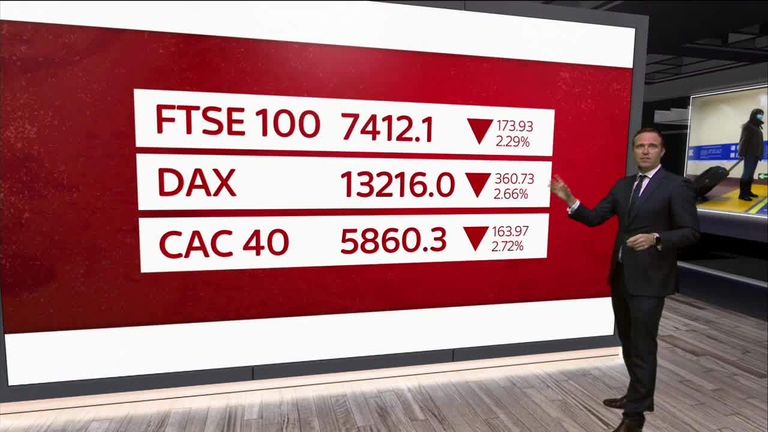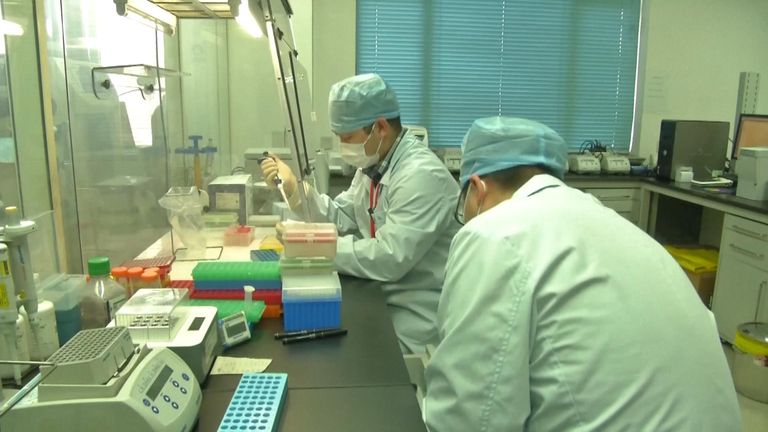The virus originated in China but, being the world's second-biggest economy, the effect has been felt worldwide - not just for travellers but for markets, businesses and economies.[/size]
Airlines
British Airways suspended flights to and from mainland China and also suspended bookings for two days after the Foreign Office advised against "all but essential travel". BA owner IAG fell by around 6% earlier in the week on news of the virus and it was only slightly recovering on Wednesday.
Virgin Atlantic has told passengers on its flights to, from and through China - including Hong Kong - between 22 January and 29 February that they can re-book or request a refund.
Advertisement
Cathay Pacific says it will reduce capacity to and from mainland China by 50% or more from 30 January until the end of March. Shares were down 3.2%.
Other airlines that have cancelled flights include Finnair, Lion Air, Air Seoul, Air Canada, and United, the latter two blaming drop in demand.
Chinese airlines, such as Air China, China Eastern and China Southern, are still operating. China's market is still closed due to the Lunar New Year holiday.

[size=16]BA halts flights to mainland China over coronavirus[/size]
Hotel groups
French hotel owner Accor ended Friday at €38.16 (£32.37) per share but as news of the virus's impact on travel became clearer on Monday it fell as low as €36.14 (£30.57).
UK-based InterContinental Hotels Group had a similar experience, losing more than 6% in the early hours of Monday. Hyatt Hotels lost just over 3.6% over the same period.
Ctrip, China's largest online booking platform, says more than 300,000 hotels had agreed to refund bookings between 22 January and 8 February. Other operators have made similar offers.

Image:The number of people infected has passed that seen during the SARS outbreak
Luxury items
According to Credit Suisse's report on global wealth late last year, China has more wealthy people than the US. It also has 100 million of the world's top 10% of earners, overtaking America's 99 million for the first time.
China's share of the global luxury market is expected to expand from 33% in 2018 to 41% in 2025, says Forbes, and more than three-quarters of that luxury spending is done while travelling abroad.
So when a virus hits just ahead of China's biggest public holiday and travel is severely curtailed (China has cut off access to Wuhan and 16 other cities to prevent the virus from spreading), luxury brands are going to feel the pinch.
When markets opened on Monday, LVMH (Moet Hennessy - Louis Vuitton) fell by almost 4%, Hermes lost 5.2% and Dior lost more than 10%. All three were showing signs of slight recovery on Wednesday morning but nowhere near enough to regain the earlier losses.

[size=16]Why oil traders are worried about China's coronavirus[/size]
Oil
When people stop travelling as flights, tours and holidays are cancelled, the demand for oil is hit and the price per barrel goes down.
Earlier this week, Andy Critchlow, head of news in EMEA for S&P Global Platts, told Sky's Ian King Live that, while oil did n't suffer too badly during the SARS outbreak, China and its 1.4 billion people had become a bigger consumer since then.
He said: "If China's economy wobbles as a result of this virus then over 2020 all the forecasts about Chinese oil demand growth will have to be revised".
The Organisation of Petroleum Exporting Countries (OPEC) usually keeps prices high by limiting supply. Before the virus they had agreed to cut supply until March but on Tuesday said they want to extend these to at least June as the virus's effect on oil demand becomes clearer.
That decision helped Brent crude recover slightly from a lower $57.86 (£44.47) on Monday.

[size=16]27 January: Economics editor Ed Conway on the economic impact of coronavirus[/size]
Markets
China's markets have been closed for the Lunar New Year holiday but Hong Kong opened on Wednesday and promptly tumbled almost 3% after a number of companies warned the virus would affect their businesses.
In the UK, nearly £44bn was wiped off the value of the FTSE 100 on Monday, losing 2.3%, or 174 points, the biggest percentage fall since October.
Other
Many shops around China have closed due to the lack of shoppers but travel restrictions mean employee travel and stock moving are also affected.
Toyota is stopping operations in China until 9 February, with a Bloomberg report quoting a spokesman as saying this is due to "various factors including the guidelines by the local and regional governments and parts supply situation".
Starbucks has closed more than half of its 4,000 stores in China, warning this may affect its financial results.
McDonald's has suspended business in five cities in the affected Hubei province and the owner of KFC and Pizza Hut has closed outlets in Wuhan.
Disney has closed its Shanghai and Hong Kong resorts.

[size=16]Race to develop coronavirus vaccine[/size]
Apple chief executive Tim Cook said the outbreak has already caused some suppliers in China to delay reopening factories after the holiday from the end of this month until 10 February. Some stores have closed or reduced operating hours due to the fall in shopper numbers.
Facebook and Alibaba told their employees in China or those who have travelled there to work from home. Similar measures were taken by Goldman Sachs, Standard Chartered, Samsung Electrics, Honda, and Nippon Steel.
HSBC and Exxon Mobil are among those that have banned employee travel to Hong Kong and China. Honda and Nissan have flown some employees to Japan from China on a government chartered flight.
Around 100 Uniqlo stores are closed in Hubei, along with an IKEA store in Wuhan. IMAX has delayed film releases in China and H&M has closed around 45 stores and suspended business travel to and within China.
 would enable you to enjoy an array of other services such as Member Rankings, User Groups, Own Posts & Profile, Exclusive Research, Live Chat Box etc..
would enable you to enjoy an array of other services such as Member Rankings, User Groups, Own Posts & Profile, Exclusive Research, Live Chat Box etc.. 
 Home
Home

















